MercoPress. South Atlantic News Agency
Tag: Socialist
-
Tuesday, January 14th 2020 - 09:50 UTC
Labour leadership succession race: pragmatic center or a radical “proud Socialist”

Five MPs formally entered the race on Monday to succeed Jeremy Corbyn as leader of Britain's main opposition Labour party, and rebuild their movement after last month's disastrous election.
-
Tuesday, November 19th 2019 - 23:41 UTC
Uruguay presidential elections: Lacalle Pou would widely win, according to polls
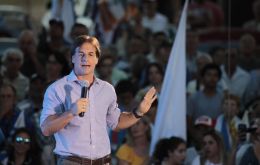
After a long election campaign, Uruguayans live the last days before the second round of the presidential elections, which will take place on Sunday, November 24. The latest polls before the ballotage positions the nationalist Luis Lacalle Pou as the next president of the country, breaking the hegemony of the left that the Frente Amplio (Broad Front) imposed in the last 15 years.
-
Thursday, November 14th 2019 - 09:57 UTC
Uruguay presidential debate focused on economy and security ahead of the ballotage on November 24

In a tense debate a week and little of the second round of the presidential election in Uruguay, on Wednesday night the candidates offered profound differences both in terms of economy, public security and the country's positioning in foreign policy mentioning the dictatorship of Venezuela.
-
Monday, October 7th 2019 - 09:40 UTC
Portugal's incumbent Prime Minister and stability policies win election

Portugal's incumbent Prime Minister Antonio Costa's Socialists won a general election on Sunday after presiding over a period of solid economic growth following years of austerity, near total results showed. The Socialist Party (PS) took 37% of the vote, followed by the centre-right Social Democrats (PSD) with 28%, with 98% of constituencies counted, according to the interior ministry.
-
Wednesday, April 24th 2019 - 09:10 UTC
Possible Spanish Socialist and Conservative coalitions too close to call according to latest opinion polls

Spain’s Socialists increased their lead in two polls published over the weekend, with support from 28.8% to 30.3% of voters, but they fell short of a majority ahead of a general election on April 28.
-
Thursday, February 21st 2019 - 08:34 UTC
Taiwan to the rescue of “socialist” Ortega with a 20-year US$ 100 million loan
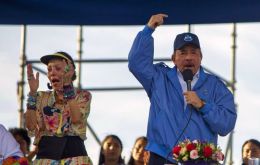
Nicaragua's Congress on Tuesday accepted a US$ 100 million loan offered by Taiwan, giving a line of support to President Daniel Ortega's government, which has become increasingly isolated after a brutal crackdown on protesters last year.
-
Wednesday, January 30th 2019 - 20:55 UTC
Venezuela: Socialist International recognizes Guaidó and calls Maduro “illegitimate”
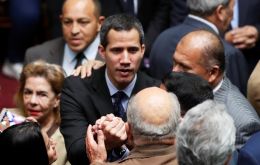
The Council of the Socialist International (SI) approved a communique on Tuesday where they recognize deputy Juan Guaidó and the Venezuelan National Assembly as the only legitimate power of leading a process of democratic transition in Venezuela.
-
Thursday, January 10th 2019 - 09:00 UTC
Coalition of rightwing parties will rule Andalusia for the first time in 36 years
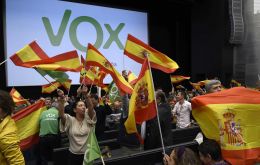
A coalition of rightwing parties will rule Spain's most populous region, Andalusia, for the first time in 36 years under a deal with the far right. The conservative Popular Party (PP) will rule along with the centre-right Citizens.
-
Thursday, December 13th 2018 - 21:19 UTC
Socialist Pablo Iglesias regrets about Venezuela: “The political and economic situation is disastrous”
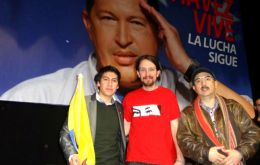
The Spanish Socialist leader, Pablo Iglesias, appeared before the Spanish Senate on Thursday over the alleged illegal financing that his political coalition, Podemos, could have received from Venezuela and Iran. In a tense debate with a senator from the Popular Party (PP), Iglesias said that the situation in the South American country “is disastrous” and that he regrets things he has said in the past.
-
Tuesday, September 4th 2018 - 08:52 UTC
Bye, Bye Lula

On Sunday, Brazil’s top electoral court ruled that “Lula”, former president Luiz Inácio da Silva, cannot run in the presidential election this October. He served two terms as president (2003-2011), he dutifully waited out the following two terms, and his Workers’ Party (PT) has nominated him for the presidency again.
